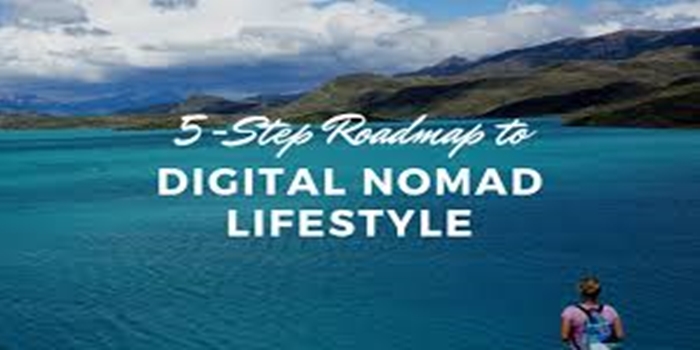In this article, we discussed the meaning of digital nomad lifestyle, the features, the examples, we also talked about the pro and cons
Definition
The Digital Nomad lifestyle means working remotely using digital technology while traveling and living in different locations. It’s a lifestyle where individuals have the freedom to move from place to place while maintaining their professional responsibilities, often relying on the internet and digital tools to stay connected.
Remote Work:
Digital nomads leverage technology to complete work from anywhere, eliminating the need for a fixed office or traditional work setting.
Geographic Flexibility:
They are not tied to a specific location and can choose to live and work in various countries or regions.
Technology Dependency:
Their work relies heavily on digital tools and internet access to stay connected with clients, colleagues, and projects.
Varied Work Fields:
Digital nomads can be found in diverse fields like software development, web design, writing, marketing, and more.
Travel and Exploration:
The ability to work remotely allows them to explore different cultures and experiences, often prioritizing leisure and adventure.
In essence, the digital nomad lifestyle represents a blend of remote work, global travel, and the freedom to live and work on their own terms.
The Features of Digital Nomad Lifestyle:
- Geographic Mobility:
Digital nomads are not tied to a specific location and can work from anywhere with a reliable internet connection.
This allows them to live in different countries and experience various cultures.
They can choose to live in affordable cities, explore new places, and tailor their environment to their work and leisure needs.
- Remote Work:
Digital nomads utilize digital technologies to perform their work remotely, often in fields like IT, web design, marketing, and creative industries.
They may be independent contractors, freelancers, or work for companies that support remote work.
- Flexibility and Freedom:
Digital nomads have more control over their work schedules and can choose when and how they work.
This flexibility allows them to balance work with travel, leisure activities, and personal interests.
- Community Building:
While digital nomads enjoy independence, they also often seek out and build communities with other nomads.
This can involve attending conferences, using online platforms, or joining coworking spaces to share experiences and collaborate.
- Discipline and Self-Motivation:
The freedom of the digital nomad lifestyle also requires a high degree of self-discipline and motivation to manage work and leisure effectively.
Balancing work with travel and exploration can be challenging, requiring a strong commitment to productivity.
- Travel and Exploration:
A significant aspect of the digital nomad lifestyle is the ability to travel and explore different parts of the world.
This allows them to experience new cultures, try different foods, and expand their horizons.
- Technology Dependence:
Digital nomads rely heavily on technology for both work and communication.
They need reliable internet access, laptops, and other digital tools to perform their tasks.
- Work-Life Balance:
While the freedom to work from anywhere is appealing, digital nomads must also find a balance between their work and personal lives.
They may need to set boundaries to avoid burnout and ensure they have time for rest and relaxation.
Examples of the Digital Nomad Lifestyle:
Travel while working:
A web developer working on a project while based in Bali, Indonesia, for several months.
Pursuing hobbies and interests:
A photographer documenting their travels while working on freelance projects.
Living and working in different locations:
A graphic designer moving between different cities in Europe, working remotely for a company based in another country.
Learning new skills and languages:
A digital marketer learning a new language and volunteering in a local community while traveling in Southeast Asia.
Building a network of professional contacts:
A virtual assistant attending industry events and connecting with other remote workers while based in a digital nomad hub.
Creating content and sharing experiences:
A travel blogger documenting their adventures and sharing insights on their blog and social media channels.
Pros:
Flexibility and Freedom:
Digital nomads can choose their work hours and locations, leading to a more tailored work-life balance.
Work-Life Balance:
The ability to explore new places and pursue hobbies while working can lead to a more fulfilling and balanced lifestyle.
Cost Savings:
Living in less expensive cities can reduce overall expenses, potentially saving money.
Personal Growth:
Adapting to new environments and cultures can foster adaptability, problem-solving skills, and resilience.
Global Networking:
Traveling and working remotely can provide opportunities to connect with people from diverse backgrounds.
Cons:
Internet Instability:
Reliable internet access is crucial for digital nomads, and it can be challenging to find in some locations.
Isolation:
Working remotely can lead to feelings of isolation, especially when traveling solo.
Legal Complexities:
Navigating different countries’ tax laws and visa requirements can be challenging.
Equipment Issues:
Maintaining and transporting essential equipment like laptops and phones can be problematic.
Time Zone Differences:
Working with clients in different time zones can be challenging, requiring flexibility and coordination.
Choosing a Destination:
Consider your needs:
Think about your work requirements (e.g., reliable internet, co-working spaces) and personal preferences (e.g., cost of living, culture).
Research potential locations:
Look for cities known for their digital nomad communities, affordable living, and strong internet infrastructure.
Preparing for the Journey:
Plan for reliable internet:
Research internet options in your chosen destination, including Wi-Fi, mobile data, and eSims.
Manage your medical care:
Ensure you have adequate travel insurance and understand local healthcare systems.
Prepare for equipment issues:
Pack your essential equipment and consider back-up solutions.
Set realistic expectations:
Understand that the digital nomad lifestyle is not without its challenges, so prepare to adapt and be resourceful.
Conclusion
The digital nomad lifestyle allows individuals to work remotely and travel, using technology to connect and stay productive while exploring different locations. This involves leveraging remote work options, often in fields like freelance writing, web design, or online business, to support their nomadic lifestyle.
READ: The Role of Technology in Modern Education System


